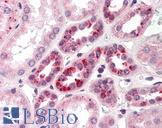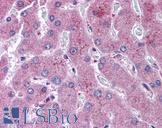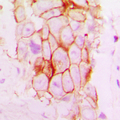Login
Registration enables users to use special features of this website, such as past
order histories, retained contact details for faster checkout, review submissions, and special promotions.
order histories, retained contact details for faster checkout, review submissions, and special promotions.
Forgot password?
Registration enables users to use special features of this website, such as past
order histories, retained contact details for faster checkout, review submissions, and special promotions.
order histories, retained contact details for faster checkout, review submissions, and special promotions.
Quick Order
Products
Antibodies
ELISA and Assay Kits
Research Areas
Infectious Disease
Resources
Purchasing
Reference Material
Contact Us
Location
Corporate Headquarters
Vector Laboratories, Inc.
6737 Mowry Ave
Newark, CA 94560
United States
Telephone Numbers
Customer Service: (800) 227-6666 / (650) 697-3600
Contact Us
Additional Contact Details
Login
Registration enables users to use special features of this website, such as past
order histories, retained contact details for faster checkout, review submissions, and special promotions.
order histories, retained contact details for faster checkout, review submissions, and special promotions.
Forgot password?
Registration enables users to use special features of this website, such as past
order histories, retained contact details for faster checkout, review submissions, and special promotions.
order histories, retained contact details for faster checkout, review submissions, and special promotions.
Quick Order
| Catalog Number | Size | Price |
|---|---|---|
| LS-C188663-0.25 | 0.25 mg (1 mg/ml) | $406 |
Monoclonal Hamster anti‑Mouse NOTCH2 Antibody (clone HMN2‑35) LS‑C188663
Monoclonal Hamster anti‑Mouse NOTCH2 Antibody (clone HMN2‑35) LS‑C188663
Antibody:
NOTCH2 Hamster anti-Mouse Monoclonal (HMN2-35) Antibody
Application:
Flo
Reactivity:
Mouse
Format:
Unconjugated, Unmodified
Toll Free North America
 (800) 227-6666
(800) 227-6666
For Research Use Only
Overview
Antibody:
NOTCH2 Hamster anti-Mouse Monoclonal (HMN2-35) Antibody
Application:
Flo
Reactivity:
Mouse
Format:
Unconjugated, Unmodified
Specifications
Description
NOTCH2 antibody LS-C188663 is an unconjugated hamster monoclonal antibody to mouse NOTCH2. Validated for Flow.
Target
Mouse NOTCH2
Synonyms
NOTCH2 | AGS2 | HN2 | Notch (Drosophila) homolog 2 | Notch homolog 2 (Drosophila) | Notch 2 | Notch homolog 2 | HJCYS
Host
Hamster
Reactivity
Mouse
(tested or 100% immunogen sequence identity)
Clonality
IgG
Monoclonal
Clone
HMN2-35
Conjugations
Unconjugated
Purification
Protein G purified
Modifications
Unmodified
Immunogen
Mouse Notch 2-Fc fusion protein.
Specificity
Recognizes Notch 2, one of the four major transmembrane receptors (Notch 1-4) of the Notch signalling pathway, which is activated through binding to DSL domain-containing membrane-bound specific ligands. The Notch signalling pathway is an evolutionarily conserved pathway in multi-cellular organisms, which is vital for cell-cell communication, important during fundamental developmental and physiological processes, including regulation of cell fate decisions during neuronal, cardiac and endocrine development, stem cell haematopoiesis, thymic T-cell development, and both tumor progression and suppression. Ligation of Notch receptors by their specific ligands, Jagged1 (CD339), Jagged2, Delta like-1 (DLL1), DLL3 and DLL4, on physically adjacent signal receiving cells, induces proteolysis of the receptors by ADAM-family metalloproteases and gamma-secretase complex, within the transmembrane domain, releasing the Notch intracellular domain (NICD) to translocate to the nucleus. Subsequent signal transduction then occurs through either the CSL-NICD-Mastermind complex cascade (canonical pathway), or NF-kappaB-NICD and CSL-NICD-Deltex complex signalling cascades (non-canonical pathway). The canonical pathway inhibits the differentiation of stem cells or progenitor cells, whilst the non-canonical pathway promotes differentiation. Signalling through Notch 2 has been implicated in the development of marginal zone B cells (MZB), the sensitization of endothelial cells to apoptosis, and the regulation of the expression of CD23 in B-cell lymphocytic leukaemia (B-CLL). Studies have also shown a correlation between a decrease in Notch 2 expression and an increase in grade of human breast cancer. Clone HMN2-35 has been shown to cross-react with rat mast cell line RBL-2H3 and Y3 myeloma cells, in flow cytometry.
Applications
- Flow Cytometry
Presentation
PBS, 0.09% Sodium Azide
Storage
Store at 4°C or at -20°C. Store undiluted. Avoid freeze-thaw cycles. Microcentrifugation recommended if solution contains precipitate.
Restrictions
For research use only. Intended for use by laboratory professionals.
About NOTCH2
Publications (0)
Customer Reviews (0)
Featured Products
Species:
Human, Chimpanzee, Dog
Applications:
IHC, IHC - Paraffin, Western blot, ELISA
Species:
Human
Applications:
IHC, IHC - Paraffin, Western blot, ELISA
Species:
Human
Applications:
Western blot, Immunoprecipitation
Species:
Human, Rat
Applications:
IHC, IHC - Paraffin, Western blot
Species:
Human, Rat
Applications:
Immunofluorescence, Western blot, Immunoprecipitation
Request SDS/MSDS
To request an SDS/MSDS form for this product, please contact our Technical Support department at:
Technical.Support@LSBio.com
Requested From: United States
Date Requested: 4/16/2025
Date Requested: 4/16/2025













